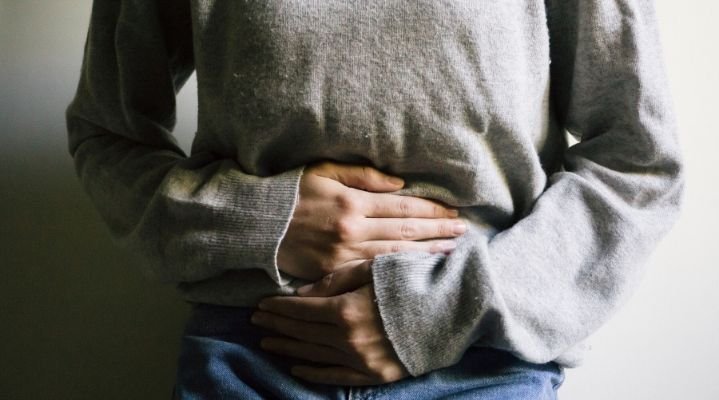Health Hub
IBS – what it is and what you can do about it

Irritable Bowel Syndrome, or IBS, can often be viewed as an invisible condition with no real, definitive diagnosis. People suffering with IBS often report that they have felt as though their symptoms are not taken seriously by both family and health professionals, and it can be understandably frustrating that tests, by definition, come back as normal.
If you have IBS, the symptoms can severely affect your life. They can be debilitating and frustrating, impact on your physical and mental wellbeing, and disrupt your social and working life.
In this article, we speak to King Edward VII’s Hospital Consultant Gastroenterologist, Dr Ed Seward to understand more about IBS. He aims to clear up any misconceptions about the condition, and provides guidance around the treatments available to relieve your symptoms — including when and how you should seek medical support.
What is Irritable Bowel Syndrome?
IBS is a very common condition that affects the digestive system. It’s often a long-term condition that can begin in your teenage years, or 20s, but it can come on at any age.
The condition can cause a variety of symptoms including; changes to your bowel habits, abdominal pain, and windy symptoms like bloating. IBS symptoms can vary in severity, and stay dormant for a while and then flare up seemingly at any time, too.
Flare ups can last for anything from a day or two, to several weeks or months at a time.
It affects around 1 in 5 people and is thought to affect twice as many women as it does men.
Because the symptoms vary and can be triggered at different times, it’s often difficult to manage and this is a source of great frustration to people with IBS.
One of the most important features of IBS is that it can mimic other conditions. Examples include Coeliac disease (an allergy to wheat), Crohn’s disease or ulcerative colitis (inflammatory conditions of the bowel), or even cancer.
What are the symptoms of IBS?
The term IBS is given to a range of symptoms that affect the stomach and bowel. Symptoms include:
- Stomach pain
- Cramping
- Bloating
- Flatulence (wind)
- Constipation
- Diarrhoea
- Mucus in the stools
- Feeling tired and drained of energy
- Nausea
- Backache
IBS affects each person differently, and at different times. You may experience one of these symptoms during one flare up and another symptom during a different flare up. For example, you may have a few days or weeks where you’re constipated followed by a few days or weeks when you have diarrhoea.
The stomach pain caused by IBS is often relieved by passing a stool. Sometimes, you may not be able to control when you need to pass stools, and this can be a very distressing and socially isolating symptom. Having regular diarrhoea can also make you dehydrated and fatigued.
Blood in the stools, particularly bright red, fresh blood, can be a sign that you have haemorrhoids, also known as piles. But it can also be a sign of something more serious such as bowel cancer, especially if you’re bleeding from your bottom and losing weight without trying to, so speak to your GP as soon as possible if you notice blood in your stools.

What can cause an IBS flare up?
The exact cause of IBS is still unknown but doctors think it could be related to the way the gut interacts with the immune system. IBS is also thought to be linked to gut sensitivities and problems digesting certain foods.
Triggers of IBS symptoms vary between individuals. However, many people say that eating certain foods or drinking certain drinks will trigger their symptoms.
Common foods that can trigger a flare up of IBS include:
- Spicy food
- Fatty or processed foods
- High carbohydrate foods such as bread and pasta
- Cow’s milk and other dairy products
- Caffeine
- Alcohol
- Onions or garlic
Feeling stressed or anxious can lead to a flare up of IBS symptoms, as can having an infection, such as gastroenteritis. IBS can also be worse for women around the time of their period.

Relieving the symptoms of IBS
There is no definitive cure for IBS but there are things you can do to manage your symptoms and how often you may experience a flare up.
Eating a healthy diet can be one of the most impactful things you can do to help relieve your IBS symptoms. However, remember that although some people find that increasing their fibre intake helps their symptoms, some find that it makes them worse.
Dr Seward has this suggestion as well, “I usually recommend trying a food exclusion diet. This means that for two weeks at a time, you cut out a particular food, such as wheat or dairy. It’s very important that you are thorough, and try one at a time, but food labelling makes this much easier nowadays.”
“If there is no improvement in your symptoms, reintroduce the food you have cut out and try cutting the next one out. If you methodically work your way through each particular food, you will hopefully identify the one that is upsetting your system,” he adds.
The low FODMAP diet
If the food exclusion diet doesn’t help — there is an alternative — the ‘low FODMAP diet’.
FODMAPs are a group of naturally occurring chemicals found in every food, to greater or lesser amounts. It’s thought that foods high in FODMAPs cause problems in people with IBS.
Your consultant may recommend you see a dietician who specialises in delivering a low FODMAP diet, and they’ll teach you how to follow it for a period of time — usually 4-6 weeks. They then get you to reintroduce your high FODMAP foods one by one every few days – in this way you get to see what your triggers are.
The way you eat is important too. Don’t rush or skip meals as both can upset your digestion.
Self-care
Taking steps to reduce your stress levels can also help you manage IBS. If your work is stressful for example, it can be useful to speak to colleagues to see if they have the same level of stress and what they do to help deal with it. Your manager has a duty to help you if you have a particular problem too.
Gentle exercise such as yoga and Pilates can help you manage stress. Practicing mindfulness can also help.

If you’re feeling very stressed, then counselling or Cognitive Behavioural Therapy (CBT), a form of talking therapy, can be very effective.
Exercise is a great stress buster and many people find that being more active also helps to keep the physical symptoms of IBS under control. Aim for 150 minutes a week of moderate intensity exercise, such as jogging, cycling or aerobics.
Medications for IBS
Your doctor may also talk to you about medications that can be helpful in some cases of IBS. These include antispasmodic medications that help to relax the muscles in the bowels, helping to reduce painful spasms and cramping, and things like peppermint tea to help with bloating.
Bulk-forming laxatives to help you pass stools more frequently or anti-diarrhoeal medications to help stop you passing frequent, loose stools can also be effective. Your doctor or pharmacist can advise you on your best course of action.
Probiotic supplements contain billions of bacteria that are thought to be beneficial for the health of the gut, especially if you’ve had a bout of diarrhoea or you’ve taken antibiotics for an infection either in the stomach or elsewhere in the body. Probiotics don’t work perhaps as well as the adverts suggest, but they do help some people.
When to see your GP
Getting a diagnosis of IBS can be difficult, but if you’re experiencing bowel symptoms that are disrupting your life and wellbeing, it’s important that you persevere.
It can be helpful to write down what symptoms you experience and when. For example, keeping a note of what foods might seem to trigger your symptoms or if they’re worse during the week when you’re under stress from work.
There is no test for IBS but your GP may do some other tests that will help them to rule out other conditions based on your symptoms. These may be blood or stool tests or you may be referred to a specialist gastroenterology doctor who may decide to perform a colonoscopy.
A colonoscopy procedure involves passing a thin, flexible tube into your bottom. It normally takes about half an hour, and as it can be sore you will be offered sedation to make it easier. The procedure allows the doctor to look at the inside of your large bowel to see if they can spot any sign of inflammation which may indicate Inflammatory Bowel Disease rather than Irritable Bowel Syndrome, and to exclude more worrying things like growths on the bowel.
More information
- If you think you may have IBS or you’re finding your flare ups are getting worse, speak to your GP. If you’re struggling to get a diagnosis, you can ask to speak to a different GP within your practice. Alternatively, or if you don’t have a GP, you can book an appointment with one of our private GPs.
- We also have a specialist Gastroenterology Department here at the King Edward VII’s Hospital in Central London, that treats patients suffering with a wide range of gastrointestinal conditions including IBS.
Article Sections
Latest Hospital News
Should you wish to speak to our press team, please visit Press Enquiries




